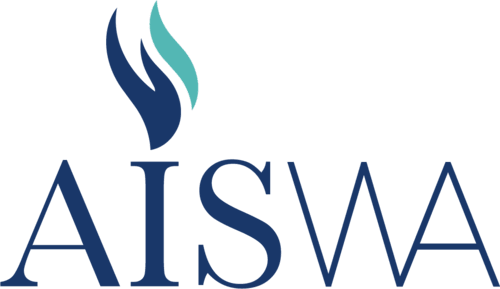Camera, Lights, Action, Communication
Language teachers and assistants from AISWA and CEOWA schools collaborated to plan, film, edit and share video resources at a recent workshop organised by Cherie Hess, Consultant for Languages from the Catholic Education Office of WA.
The aim of the workshop was for teachers and teacher assistants to work collaboratively to create short films (1-2 minutes) in the target language and to develop learning tasks based on the videos. On the day there were five groups working on films: two groups each in Italian and Indonesian and one group in Japanese. The groups were self-directed and responded to this freedom with energy and excitement; the buzz of engagement and sizzle of success rose and rose as new skills were mastered and the promise of take-home video resources became a reality.
Creating a short film was useful and great fun, but the real learning was that it's a great way to maximise the benefits that a background-speaker teacher assistant brings to your language program. The language teacher assistants (Hara, Julianti, Bianca, Arianna,Yuki and Risa) were the stars. It was their knowledge and use of authentic, contemporary language that gave the films life. The language teachers became directors, applying their understanding of curriculum and students' abilities and interests to produce films to suit their classes. Some first speaker teachers even joined in to be part of the scenarios.
You can do it, too, with the right resources, an understanding of the process and some practice.
Resources
- Who are your native-speaker resources? Language teacher assistants? Friends or colleagues? Community members? Parents of students in your school? University students?
- A video recorder, for example, a mobile phone, a tablet computer or a camera.
- (Optional) Someone who knows just a bit more than you about how to record and edit video recordings. Green screen facilities provide more flexibility with the location of the scenes.
Process
You won't be surprised to learn that the planning stage is critical. You start with a scenario (Who are the people talking? Where are they? What sorts of things will they talk about?) Discuss this with your performers, but don't write a script. The conversation must evolve naturally to be authentic. Colloquial language is perfect because it adds richness and helps students feel up-to-date. Scenarios from the workshop included:
- two friends meeting in a coffee shop and discussing the menu
- an accidental meeting of old friends who haven't seen each other for ages and catch up on family, where they are living now and whether they have seen other former friends. They exchange phone numbers.
- in a restaurant, a customer asks the server about the menu items. (Could include interesting aspects such as allergies, particular likes and dislikes, spiciness of the food etc)
- a sister-school colleague enquires at the local zoo about zoo facilities and animals in order to make a recommendation to bring a group of visiting Australian students to the zoo.
- someone who hasn't been to a particular city asks someone who lives there about places and sights to visit and things to do in the city.
Remember, as director, your role is to help the performers to map out what they will talk about in their impromptu conversation (ie NO SCRIPT). You will also remind them to keep it short (1-2 Minutes). A big lesson from the workshop was that it's easier to make two or three short videos that one longer one.
Practice
Have a go - after all, language learners are risk-takers. And you and your students will reap the rewards.

